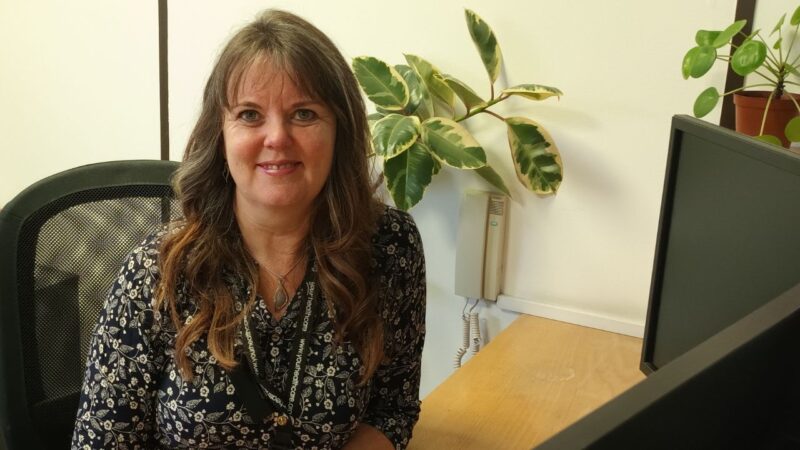Natalee le Roux has spent her whole career as a speech and language therapist and enthusiastically describes her profession and the transformational impact it has on people’s lives. As team leader for adult speech and language therapy with Kingston community service provider Your Healthcare, she supports people with swallowing difficulties (dysphagia), intervening early to prevent the risk of choking, chest infections, aspiration pneumonia and malnutrition that can lead to a hospital stay. She also works in the community neuro rehabilitation team, helping people address the communication challenges brought by a neurological diagnosis.
Tell us about dysphagia and how you tackle it
The majority of people we see have dysphagia. That might be because of frailty, dementia, cancer or if they have a neurological condition. Swallowing is such a natural thing – you never think about it until there’s a problem. Sometimes people start avoiding particular foods and end up with weight loss. We’ll carry out our swallow assessment, which includes watching somebody having a meal, gaining background information and trialling strategies and any food or fluid modifications. Usually, within a session, the assessment is completed and patients are supported with individualised recommendations. We find we’re able to introduce significant change rapidly, within this process. There are also more complex cases which might require ongoing management and further investigation.
Did you always want to work in this area?
I always knew I wanted to do something healthcare related. Speech therapy appealed as it has the medical side but you’re able to develop working relationships, in some cases longer term with people. I trained back in South Africa and chose to specialise in the augmented and alternative communication aspect of the work.
Initially I was working with children with special needs. I did that for over 20 years teaching Makaton signing and devising communication systems – books, charts and communication aids. It was rewarding but in 2019 I felt like a new challenge. I had done a brief secondment with my current team and when a post became available, I applied.
What is augmented and alternative communication?
Augmented communication can be anything that aids speech, where someone has speech difficulties and can’t be understood. Alternative communication systems are introduced if someone has lost speech altogether. The developments over the last few years have been remarkable. We used to have a couple of synthesised voices to choose from – very mechanical sounding. Now we can ‘bank’ the person’s own speech. When the time comes, when someone has lost their speech, we can transfer their banked voice to a digital format to use with communication aids.
Do you have an example of how that works in practice?
I have a motor neurone disease patient who was referred because of his swallow. It took a while to get his diagnosis, during which communication was becoming difficult for him – changes were happening so rapidly and his speech was so significantly affected that we missed the window of opportunity of recording his voice. We had to look into his past, for old answerphone messages, the speech at his daughter’s wedding… Eventually his family found camcorder recordings from their Christmas in 2005. A company we work with cloned his voice and we’ve put that on a communication device. When he types, it speaks in a voice as close to his as possible, which has been so lovely for the family.
What is the most satisfying thing about your job?
The thing that I really enjoy is being able to meet somebody and within our very first session, give them strategies that make an immediate difference – that’s very rewarding. And working with multiple different teams within our organisation – our district nurses and rapid response but also hospitals, social care, social prescribing and our GP colleagues. We also work with charities, particularly with the community neuro patients. They help fund some of the equipment that we use with patients.
What would you say to anyone considering a career in speech and language therapy?
Oh, I rave about it. I think the very nature of the job keeps it so interesting. There are constant new developments within the field, so you’re developing skills and coming across new technology and new techniques, which benefit our patients. The range of people you see is just wonderful – it’s a cross section of life because anything can happen to anybody at any time. Within speech therapy, there are so many specialist areas. I did a four-year BSc degree, but there are various routes, including apprenticeship options.
Tell us something we might not expect about you
I’m an archery instructor, although I haven’t practised for years. I trained in my first speech therapy job. We were working with students with disabilities and we each had to get involved in different sports – so I chose archery.
How do you feel about the future of the NHS?
I’m quite excited about the NHS 10-year plan in terms of neighbourhood working because I can see the real value that people place on community services. I am obviously, slightly biased but I know how patients respond to the individualised care that we bring to them in their homes.
